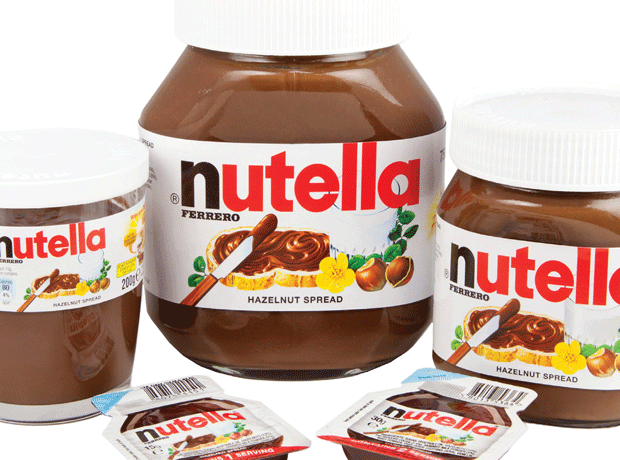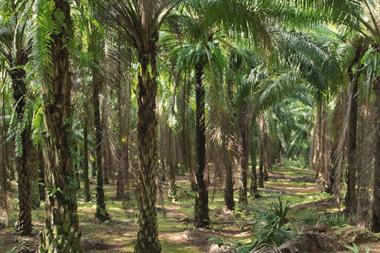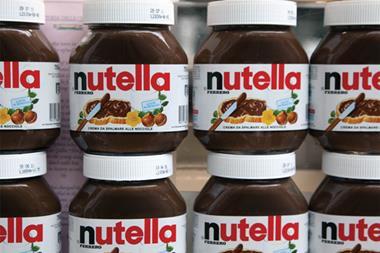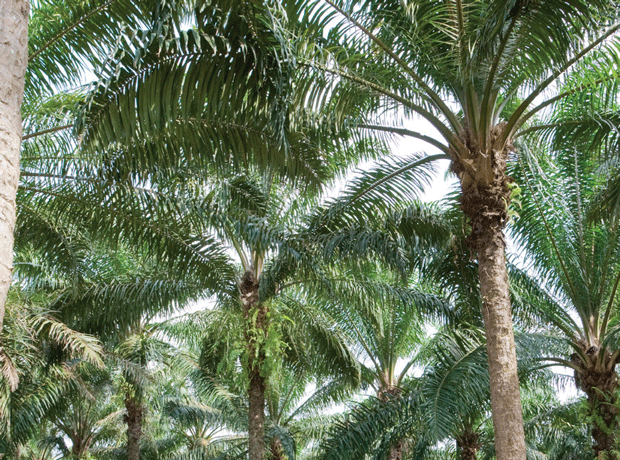
Ferrero has defended its responsible sourcing record on palm oil, after a senior French minister called on consumers to boycott its flagship Nutella brand.
Ségolène Royal, French ecology minister and a former presidential candidate, told a French television show that cutting Nutella from the French national diet would be a good way to help fight climate change because of the palm oil contained in the spread.
“We have to replant masses of trees because there’s been a massive deforestation, which also leads to climate change,” she was quoted as saying. “For example, we have to stop eating Nutella because of its palm oil, which is seeing trees getting replaced and causing considerable damage.”
Ferrero did not comment directly on Royal’s statement but said all the palm oil used in its products was certified as sustainable through the Roundtable On Sustainable Palm Oil (RSPO).
It added it was also a signatory to the Palm Oil Charter, which sets out sustainability commitments that go beyond the certification criteria covered by the RSPO, including not clearing high-carbon stock forests, not planting on peat soils and protecting orang-utans through dedicated conservation areas.
Ferrero also pointed out its impact on the overall palm oil sector was relatively small. “Ferrero sources approximately 170,000 metric tons of palm oil, out of a worldwide production of 60 million metric tons, meaning that Ferrero’s impact on the palm oil supply chain represents less than 0.3%.”
Meanwhile, the RSPO said it was “deeply concerned” by Royal’s comments. The way to tackle environmental concerns associated with palm oil was to move to sustainable palm oil, it said, warning boycotting palm and switching to other vegetable oils instead could, in fact, have a negative impact on the environment because they were less land efficient than palm.
It added Ferrero was a leading food manufacturer promoting the use of certified sustainable palm oil (CSPO). ”As of 1st January 2015, Ferrero products contain only 100% segregated CSPO. For a large food manufacturer this is a considerable achievement. We encourage other companies to mirror Ferrero’s commitment to sustainable palm oil sourcing.”
Controversy
Palm oil is one of the world’s most important raw materials, used in an estimated 50% of all packaged food products.
It has a long history of being targeted by environmental campaigners for its impact on tropical rainforests and habitats of endangered species, particularly orang-utans, in key producing countries such as Indonesia and Malaysia.
Palm oil has proved especially controversial in France, where ‘no palm oil’ labels have recently started springing up on food products and the government tried to introduce a special palm oil tax back in 2012.
More generally, however, many international campaign groups have more recently moved away from calling for outright boycotts of products containing palm oil – especially since the launch of the RSPO certification scheme – and have started focusing their efforts more on increasing the proportion of sustainably produced palm oil around the world and on better labelling.
A key step towards better labelling was taken in December, when new EU labelling regulations under the Information to Consumers package brought in a requirement for food producers to stop using the generic term “vegetable oil” and instead specify precisely what oil is used in their products.



















No comments yet